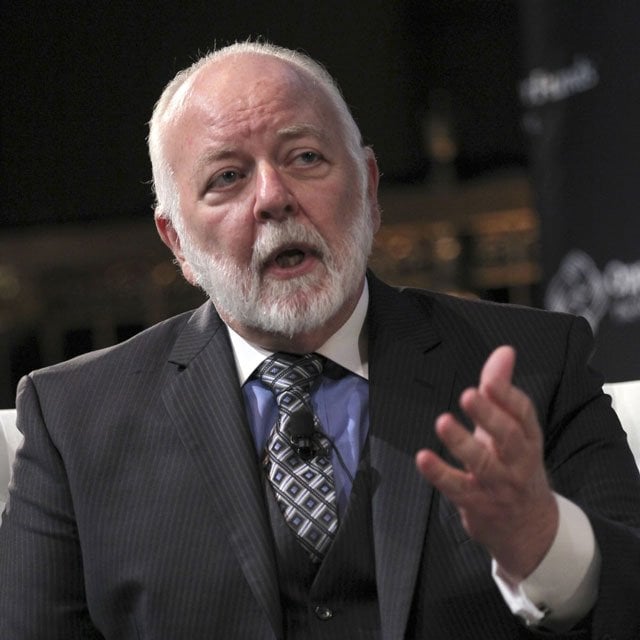Dick Bove: What Really Sparked the Bank Turmoil, and Where It's Headed

Depositors and investors lost patience with U.S. banks even before the recent Silicon Valley Bank and Signature Bank failures, Dick Bove, chief financial strategist at Odeon Capital Group, suggested in a recent interview.
“Basically I think over the past year the banking industry in the United States lost the confidence of the American public,” Bove told ThinkAdvisor on Monday, although he consider U.S. banking to be on solid footing.
“In the case of the depositor it’s pretty simple to understand” — as interest rates rose, they continued to earn a pittance on their savings even as banks enjoyed a windfall.
“The way the depositors showed their unhappiness was they started taking their money out of the banks,” pulling out more than $1 trillion in the past year, Bove added.
The banks panicked and started sharing higher rates with big-ticket depositors, but 6% of deposits in the banking industry “walked out the door,” he said.
Key politicians used to make banks explain when they kept all the profits to themselves, Bove explained. “I’m surprised that no politician today even cares about it,” he said.
Investors, meanwhile, felt they couldn’t trust banks’ earnings statements and got fed up, Bove said. Banks’ accounting methods, while legal, didn’t reflect that the bonds they owned had lost value as interest rates climbed, he explained.
“Banks basically created fictional numbers” to show higher returns on investments than they were actually getting.
Rather than engaging in big stock buybacks over the past few years, banks could have funded $3.2 billion in loans and generated robust income, he added.
“You set the stage for disaster” when depositors and investors are unhappy, he added, although Bove offered assurances that the U.S. banking sector is sound.
The strategist shared several other insights about the current banking landscape.
Don’t Worry
“U.S. banks earned $330 billion last year and they’re not in trouble,” Bove said.
If the Federal Reserve has money from the banking system, and banks put excess deposits into the banks without adequate deposits, as they do, it’s hard to cherry-pick banks at risk of going under, he said.
U.S. banks recently deposited $440 billion at the Fed — as a loan — to lend to troubled banks and pay off some Fed debt, he said.
As Bove explained, if everyone took all their money from a Texas bank and deposited it into New York banks, the New York banks would lend it to the Texas bank so it wouldn’t go under.
Silicon Valley Bank is essentially gone and will be split up and sold. But First Republic, which received a $30 billion cash infusion from several larger banks to help stabilize it following SVB’s collapse, is “actually a good bank,” Bove said. He expects someone will acquire First Republic, which has a sizable wealth management business.
“No one is saying that these loans are no good,” he added. If Americans are paying back loans then there’s plenty of money available to pay interest on deposits, “so there’s no reason to take the deposits out,” he said.
(JPMorgan Chase CEO Jamie Dimon is leading an effort to help First Republic, The Wall Street Journal reported Tuesday. Sources told CNBC that First Republic is considering options, including a possible sale and a capital raise. Reuters reported the bank may consider selling some loans to others to help raise cash.)
Don’t Yell ‘Fire’
Bove faulted the Fed and the Federal Deposit Insurance Corp. for not taking steps to keep people from spreading rumors that a bank may be in trouble.
“It’s just unbelievable that they’re not saying anything,” he said.
As others have, Bove compared saying a bank is insolvent and suggesting depositors take their money out to yelling “fire” in a crowded theater. That bank may be funding mortgages, businesses, cars and student loans and holding deposits, and “you’re driving that bank out of business,” Bove said. “What happens to that community?”
While he noted he wasn’t accusing anyone specific of doing this, Bove said, “It is now possible for investment groups to short the stock in a bank, create a rumor that the bank is insolvent and drive it out of business and walk away with a huge profit on the shorts. … The government is allowing it to happen.”




